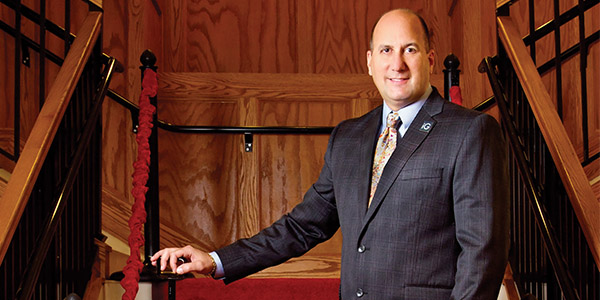“Write a business plan” is one of the first things every entrepreneur hears.
But, why?
The short answer is that without one, a business is likely to fail. To expand on that, several businesspeople, advisors and investors were asked to provide reasons as to why a business plan is indispensable .
Most entrepreneurs have so many ideas about their products or services that they fail to analyze if their businesses are sustainable in the markets they serve. A business plan forces them to do that.
Getting it Down
A pencil and paper (or a napkin) is all that’s necessary to create a plan.
Rebecca Barborak, owner of Corks & Colors, said she made her own version of a business plan during the beginning stages of her business idea.
“It wasn’t formal, typed or organized. It included start-up costs, expected monthly expenses, ideas for marketing and goals for the business,” she said.
“Now that I look back,” she continued, “all of my chicken scratch on a piece of paper was an organic form of a business plan.”
“In my experiences, business plans often serve as a barrier to progress for new companies,” said Bill Dorman, co-founder of Startup Fusion and startup advisor at the Santa Fe Center for Innovation and Economic Development.
“I have seen many aspiring entrepreneurs delay getting started because they wanted to have a business plan in place first. On the other hand, I have seen many companies start and grow with only a simple outline. Corks & Colors is a great example,” Dorman said.
Making the Right Assumptions
Barborak went to Dorman with her notes, and he helped her to identify a simple go/no-go decision that tested a couple of key assumptions.
“With all that said, I do believe that there is great value in a structured planning process, but only when there is a strong bias toward action and execution,” Dorman said.
Alex Olcese, president of Allchem Industries, emphasizes the importance of testing the reasonableness of assumptions. He said that the first question entrepreneurs have to use to evaluate a business model is to determine if it can work on paper.
“Several years ago, a friend and I considered opening a baby furniture store because our wives were pregnant and we were having a difficult time finding furniture,” Olcese said.
They gathered basic data about the number of births in Alachua county and surrounding areas. Then, they created a financial model with all of their costs. However, when it came to revenues, they realized that there wasn’t a large enough market to support the type of business they were trying to start.
“We would have to capture approximately 70 percent of all the births in a three-county area for the project to be viable,” Olcese said. “If a business won’t work on paper with the best assumptions, it’s unlikely it will work in reality.”
Formalizing your Plan
Once it’s determined that a business can survive, then a formal plan can be written. Doing that is necessary if a business needs funding, either from lending institutions or investors.
After being turned down several times for a loan, Kristen Hadeed, owner of Student Maid™, wrote a business plan to show the lender that she was serious about her idea.
“I returned to the same bank and received the money I needed to start my business,” Hadeed recalled.
David Whitney, Director of Investment Banking at Duncan-Williams, Inc., described the elements of a winning business plan. He wants to be told in the first 45 seconds of reading it: what problem the company solves; why the marketplace supports it; who the customers are; how it will get to financial break-even; when investors will make money and when they will get their capital out.
Whitney stressed that the following must also be in a business plan: what you sell, who you sell it to, what customers pay, and what measurable value customers receive.
“If I can’t answer the question, ‘What do they sell?’ after reading a business plan,” Whitney said, “that is the ‘Kiss of Death.’”
Once funding is received and the business is successful, some businesspeople, like Barborak, continue to use it to remain focused on their goals. Others keep it in a drawer or shelf and never refer to it.
“After I received the money, I don’t think I ever looked at [the plan] again! If there’s one lesson I’ve learned it’s that things will not go according to plan—and that is the plan!”



